5. Mississippi Burning (1988)
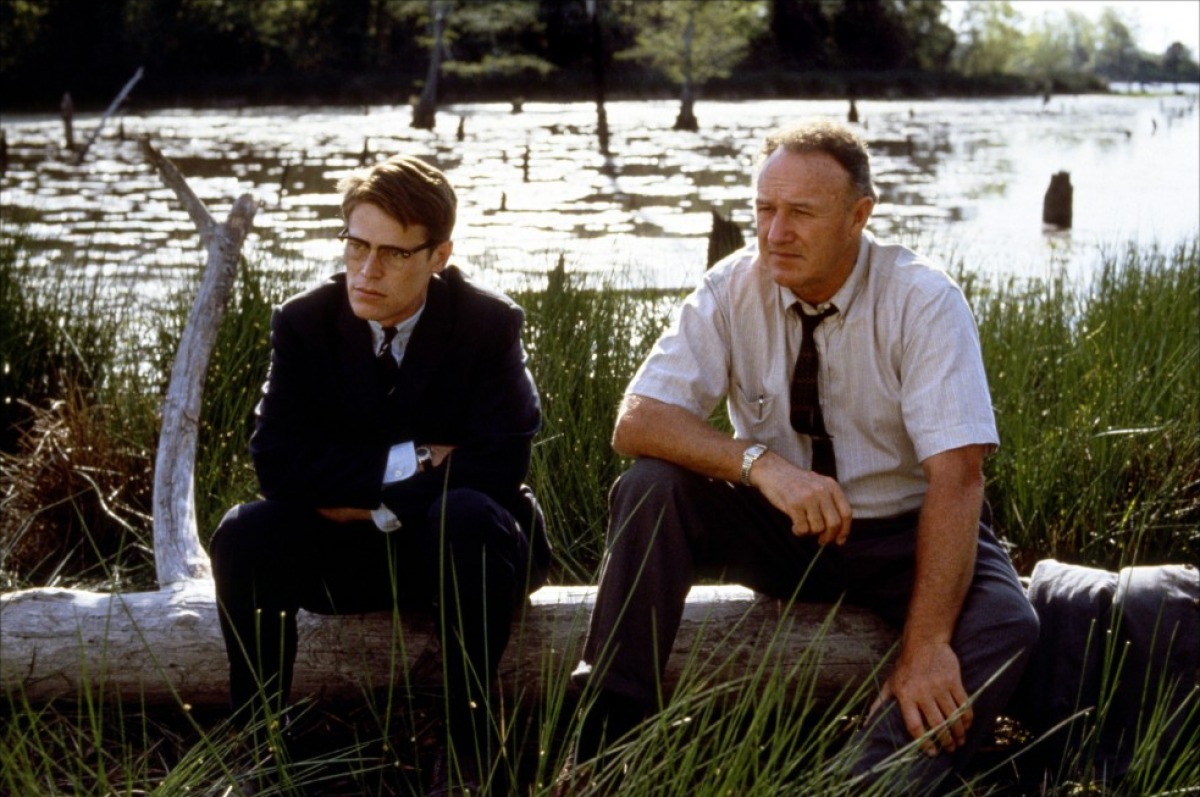
If I ever make a list of the most underrated films of all time, you can expect “Mississippi Burning” to be very high on that list. A lot of films take place in towns but this is a film almost completely constructed by the town it takes place in. The good ol’ sheriff of a racist, Southern town gathers together his buddies and partake in the murder of three civil rights workers.
Two FBI agents are sent there to investigate, one is an old schooled agent named Anderson (Gene Hackman) and the other is an idealistic man named Ward (Willem Dafoe). Together they investigate the disappearance of these three men while baring witness to the societal rules of this area. The rules I speak of are both written and unwritten, but nevertheless everyone knows them.
This is an area keen on maintaining their order in which whites have power over blacks. This is where some have criticized its portrayal of incivility of Southerners, but if we’re going to bear witness to racism then we need to experience it for how ugly it is. Why hold back on that? The whole point is that it’s a gritty police drama, one of murder and massive injustice. But is also an important piece of recent American history that people far too often overlook, don’t overlook this.
4. Memories of Murder (2003)
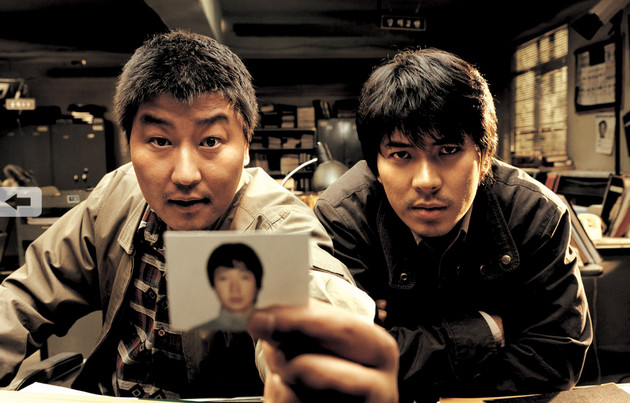
Another ‘based on true story’ film here. In 1986 a series of rape-murder cases started occurring in South Korea, dubbed as the ‘Hwaseong serial killing case’. Between 1986 and 1991 there were 10 women who had been abducted, raped, and killed by an unknown figure.
“Memories of Murder” isn’t much of a true story being told, but rather a fictionalized story to emphasize the era of South Korea that was happening at the time. In the 1980’s, South Korea was living under military dictatorship – so the result was a large influx of corruption in law enforcement. Officers and agents were using excessive force and resorting to brutal violence to interrogate witnesses, in many cases people were falsely accused of crimes they didn’t commit.
In the film we follow a group of officers who go to any length to catch the man responsible for these horrific crimes. They arrest anyone they can get their hands on, regardless of whether they’re actually guilty or not.
A massive sense of distrust is prominent between society and law enforcement, officers beat and blame the innocent so the Korean people don’t trust or aid the officers. Somewhere around 1.8 million officers were brought in on the case, and 3,000 people were questioned. But alas, no killer could be found. To this day the identity of the man responsible hasn’t been discovered.
This film was clearly an inspiration for David Fincher years later when he made “Zodiac”, and it’s funny that these stories have as many parallels as they do because they’re both based on their own separate true stories. But regardless, “Memories of Murder” is a daunting and harrowing film in which tragedy happens and there’s no justice to be found with it.
3. Zodiac (2007)
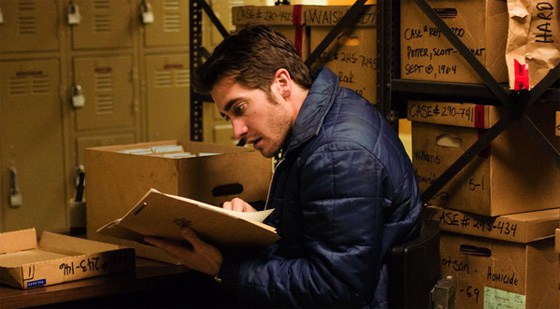
And speaking of the Zodiac Killer. “Zodiac” isn’t so much based on a true story but a complete recreation of the events that happened. The attention to detail to the legitimate case files of the Zodiac Killer is outstanding and transports us to another place and time of San Francisco in the late 60’s going into the 70’s. I find that my favorite ‘serial killer movies’ are the ones that focus not on the killer but the police and reporters that investigate them.
I think we all know the drill, The Zodiac Killer killed numerous people over the span of several years and wrote letters to the newspapers containing ciphers that if un-riddled would reveal his identity. These puzzles are brought to the attention of the San Francisco Chronicle and the police department.
The crime reporter Paul Avery (Robert Downey Jr.) and his editors at first don’t take Robert Graysmith (Jake Gyllenhaal) very seriously but soon find that he has an obsession with this case like no one else and can solve these ciphers. Detective Dave Toschi (Mark Ruffalo) and his partner are assigned to the case and investigate numerous potential suspects and follow a never ending lineup of leads, but to no avail.
Even when they come so close it’s ruled out and they have to let it go. The guilt and frustration is too much to bear for them, innocent people are being murdered and no matter what they do they can’t find who’s responsible. To this day the Zodiac case is unsolved, this may have occurred back in the 70’s but his presence is still felt to this day as more and more people are trying to discover the truth for themselves.
2. Stray Dog (1949)
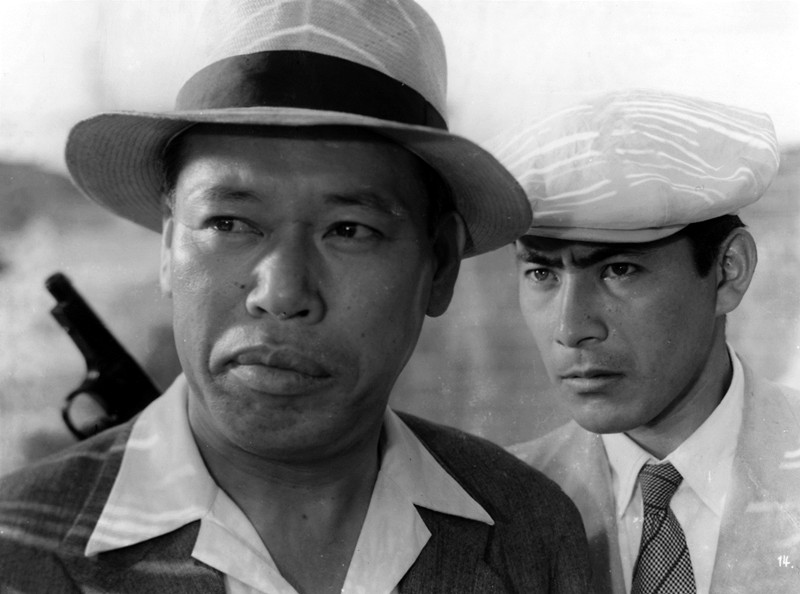
Many consider “Stray Dog” to be the beginning of Akira Kurosawa’s string of greatness. He had made plenty of films before this but this was his first massive breakthrough in what we would associate with his work.
A very American-esque type of film, almost like something out of a western, and dropped straight into post-war Japan. It has the first appearance of a simple set up with a detective who loses his gun and wants to fix a silly mistake. But we become engrossed into a life or death thriller in which a man realizes this one mistake is what leads to violence and murder in the streets.
Through such simple methods, Kurosawa makes us embark on a provocative story of honor, accountability, and morality. The technique is what punctuates the viewing experience even more so, Kurosawa’s filmmaking is legendary and this is certainly no exception.
Constantly on the move, actions always justified, and the terrain playing as big of a role in the hard feelings we feel as anything else. It’s a hot summer day and it’s unbearable, only making us suffer through the excruciating tasks of retrieving what was taken from this rookie. What follows is a series of chases, quests, and questions. And as usual, Kurosawa makes the absolute most of it. Definitely not his best film, but certainly one of the best police films.
1. Hot Fuzz (2007)
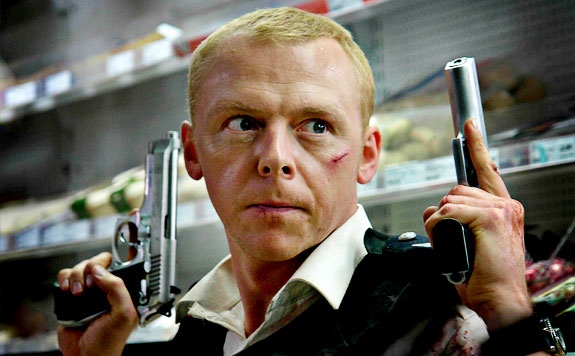
I’d be lying if I said I didn’t feel a little funny putting this in my top spot, but screw it. It feels right to me. Not just a great action parody, not just the best of the Cornetto trilogy, but one of the great police films ever made. In no way should its genre or presentation distract anyone from the incredible yet hilarious portrayal of police protocol.
Nicholas Angel (Simon Pegg) is a police officer’s police officer, he’s the model officer that everyone should live by. A fierce, sophisticated man with a love for the law and a desire to do the right thing no matter what. He takes so much pride in his job and goes far beyond what’s expected out of him, especially when so many others are either lazy or corrupt. When he’s transferred to the countryside as a sergeant it seems like a small, nothing town where not much is going to happen.
But something sinister, or in this case I should say incredibly childish, lurks beneath the surface of this town and the order in which they run things. Angel becomes partnered with Danny Butterman (Nick Frost) who looks up to him like he’s a real life incarnation of the action heroes he watches all the time in movies like “Point Break” or “Bad Boys”. And of course these action movies serve as the source of satire the film builds on, but we all know those are just action movies.
The real process of a police officer’s routine doesn’t consist of the action you see in movies all the time, so “Hot Fuzz” makes due by showing boring, everyday events look like fast edited action sequences. A lot of officers praise this film for its depiction of the paperwork that’s filled out for every incrimination and arrest that occurs, this is the most tedious part of their job that is mostly what they do. As Angel puts it: “There’s no way you can perpetrate that amount of carnage and mayhem and not incur a considerable amount of paperwork”.
Most officers go their entire career without pulling out their gun, so it’s fitting that the bulk of the depiction of these officers is through procedure rather than gunfights. When they do get into the action it purposefully delves into every action cliché known to man, but by this point it feels earned. And moreover, they stay true to what an officer’s job is: to protect and serve and find the most peaceful way out of a situation without killing anyone.
I know this isn’t the work of mastery that Kurosawa is, but who gives a s**t? In its own unique way it’s the prime depiction of police officers and has its own interesting take on utilitarian society and their quest for “the greater good”. How can you go wrong?